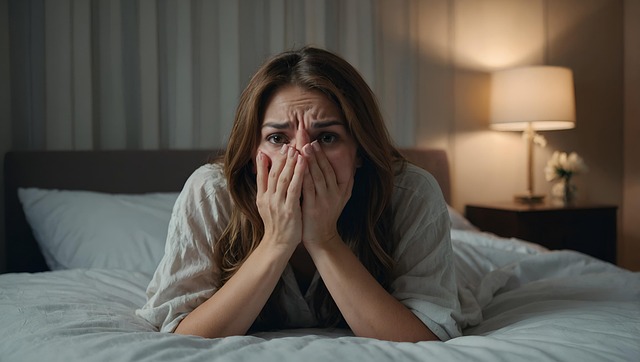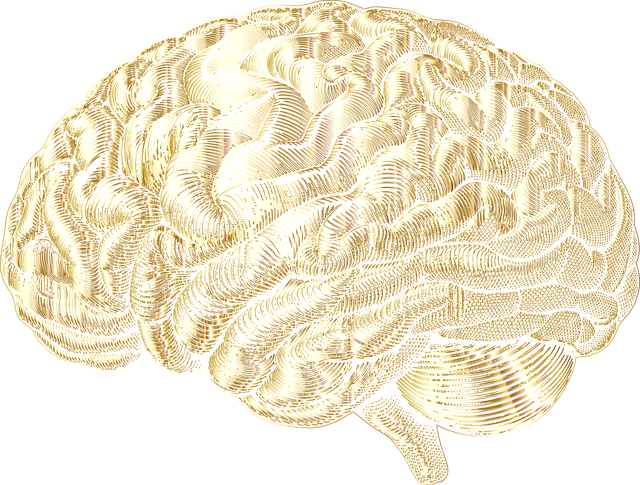Aurora First Responders prioritize mental wellness through personalized self-care routines, including therapy for trauma processing and stress management. This proactive approach enhances emotional resilience, prevents burnout, and improves personal and professional thriving. Key practices involve mindfulness meditation, nature walks, art/writing, journaling, support groups, and community building, all tailored to individual needs. Regular reflection ensures the routine remains dynamic and adaptable to evolving mental wellness requirements. Public awareness campaigns destigmatize mental health discussions, fostering open conversations. Research-backed strategies from Mental Health Policy Analysis and Burnout Prevention for healthcare providers further bolster these efforts, benefiting not only first responders but anyone seeking improved overall well-being.
In the demanding role of an Aurora First Responder, prioritizing mental wellness is paramount. This article equips you with a comprehensive guide to crafting a self-care routine tailored for your unique needs. From understanding the essence of mental wellness to integrating therapy and support groups, we explore effective strategies. Learn how mindfulness, physical activity, and relaxation techniques create balance. Discover methods to identify individual requirements and adapt practices over time, ensuring sustained well-being for Aurora’s dedicated first responders.
- Understanding Mental Wellness and Self-Care for Aurora First Responders
- Identifying Individual Needs and Prioritizing Self-Care Practices
- Creating a Balanced Routine: Mindfulness, Physical Activity, and Relaxation Techniques
- Integrating Journaling, Therapy, and Support Groups for Emotional Wellbeing
- Sustaining and Adapting Your Self-Care Routine Over Time
Understanding Mental Wellness and Self-Care for Aurora First Responders

For Aurora First Responders, understanding and prioritizing mental wellness is paramount due to the high-stress nature of their work. Developing a robust self-care routine isn’t just beneficial; it’s essential for maintaining resilience and overall well-being. This involves integrating practices that support emotional healing processes, enhance social skills training, and foster healthy coping mechanisms.
By recognizing the importance of mental wellness, Aurora First Responders can actively engage in therapy to process trauma, manage stress, and improve their emotional regulation. Self-care routine development becomes a proactive approach to prevent burnout, fostering an environment where these brave individuals can thrive both personally and professionally.
Identifying Individual Needs and Prioritizing Self-Care Practices

Developing a self-care routine tailored to individual needs is an essential step toward fostering mental wellness. This process involves introspecting and identifying unique triggers, stressors, and emotional patterns. Every person’s journey to mental health is distinct; thus, practices that promote healing and balance should be personalized. For those inspired by Aurora First Responders Therapy, this might include activities such as mindfulness meditation, nature walks, creative expression through art or writing, or engaging in hobbies that bring joy. Prioritizing self-care isn’t just about scheduling time for oneself but recognizing when rest and rejuvenation are imperative, especially during periods of heightened stress or after traumatic events.
By prioritizing self-care practices, individuals can proactively manage their mental health, potentially preventing or mitigating conditions like depression. This involves learning to recognize one’s emotional needs and responding accordingly, much like a risk assessment for mental health professionals would guide them in evaluating patient risks. Public awareness campaigns development around mental wellness can further educate people on the importance of self-care, encouraging open conversations and destigmatizing mental health discussions.
Creating a Balanced Routine: Mindfulness, Physical Activity, and Relaxation Techniques

A well-rounded mental wellness self-care routine is essential for maintaining emotional regulation and preventing burnout, particularly for those in high-stress professions like Aurora First Responders Therapy. Creating a balanced approach that incorporates mindfulness, physical activity, and relaxation techniques can significantly enhance overall mental health.
Mindfulness practices have been shown to be highly effective in managing stress and anxiety, fostering emotional awareness, and improving focus. Regular physical activity is another crucial component, as it releases endorphins that boost mood and reduce tension. Additionally, dedicated time for relaxation, whether through deep breathing exercises, meditation, or yoga, can help individuals achieve a state of calm and improve their ability to navigate challenging situations. These strategies are not only beneficial for first responders but also applicable to anyone seeking to enhance their mental health, informed by valuable insights from Mental Health Policy Analysis and Advocacy and Burnout Prevention Strategies for Healthcare Providers.
Integrating Journaling, Therapy, and Support Groups for Emotional Wellbeing

Incorporating journaling, therapy, and support groups is a holistic approach to cultivating emotional wellbeing, especially for individuals like Aurora First Responders who often face unique challenges. Journaling serves as a powerful tool for self-reflection and processing emotions, allowing one to make sense of their experiences and identify patterns that might be contributing to stress or anxiety. This practice enhances self-awareness exercises, enabling individuals to better understand their triggers and develop coping strategies tailored to their specific needs.
Therapy plays a crucial role in the emotional healing processes by providing a safe space for Aurora First Responders to process traumatic events and difficult experiences. Through professional guidance, they can learn effective social skills training techniques to navigate interpersonal interactions with ease and build strong support systems. Support groups further complement this care by fostering a sense of community and shared understanding among individuals facing similar challenges, offering peer-to-peer emotional support that can be invaluable in the journey towards mental wellness.
Sustaining and Adapting Your Self-Care Routine Over Time

Maintaining a self-care routine is an ongoing process that requires commitment and flexibility. As individuals progress on their journey to improved mental wellness, their needs may evolve, requiring adjustments to their practices. For those inspired by Aurora First Responders Therapy, understanding this dynamic is essential in fostering lasting change. A robust self-care routine isn’t static; it adapts to life’s changing seasons, much like the Mind Over Matter principles that empower individuals to take charge of their emotional well-being.
Over time, individuals should regularly assess their mental health and lifestyle changes, just as they would conduct a risk assessment for Mental Health Professionals. This reflective practice allows them to pinpoint what works best for them, what needs refining, and where new strategies might be required. By embracing adaptability, one can ensure that their self-care remains effective in promoting emotional well-being and enhances overall resilience.
For Aurora First Responders, prioritizing mental wellness through self-care is not just a recommendation but an essential practice for maintaining resilience and emotional wellbeing. By understanding the unique demands of their roles and identifying individual needs, they can create personalized self-care routines that balance mindfulness, physical activity, and relaxation techniques. Integrating journaling, therapy, and support groups further enhances emotional stability, providing crucial tools to navigate stress and trauma. Sustaining these practices over time ensures that Aurora First Responders remain equipped to handle challenges, fostering a culture of mental wellness within their community.








